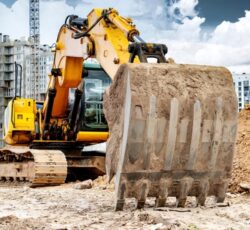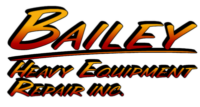Troubleshooting Common Heavy Equipment Maintenance Issues
 Troubleshooting Common Heavy Equipment Maintenance Issues
Troubleshooting Common Heavy Equipment Maintenance Issues
As an owner or operator of heavy equipment, it is essential to keep your machinery performing at optimal levels all the time. Proper preventive maintenance and servicing can help extend the life of your equipment, reduce downtime, and ensure safety in any jobsite. However, even with good preventive maintenance, heavy equipment can experience breakdowns and malfunctions that can potentially halt construction projects. In this article, we’ll go over some of the most common heavy equipment maintenance issues and how to troubleshoot them.
Problem #1: Engine Starting Difficulties
If your heavy equipment engine is slow to start, the first thing you should check is the battery. Ensure the battery terminals are clean, tight and free of corrosion. If this doesn’t fix the problem, the starter motor or solenoid might be faulty or even worn-out spark plugs needs replacement. Alternatively, You can also check the fuel system filters, air filters, and fuel injectors, or anything that affects the fuel system.
Problem #2: Overheating
Overheating can be caused by different factors, including malfunctioning fans and water pumps or clogs in the radiator. Ensure your machine has enough coolant and the coolant is the proper mixture. Examine the radiator periodically for potential obstructions like dirt, bent fins and debris. Additionally, you can check the water pump and engine thermostat to ensure they are functioning correctly. Motors that run hot for prolonged periods will eventually break down.
Problem #3: Hydraulic Failures
Hydraulic issues can be due to low fluid levels, fluid contamination, damaged hydraulic hoses, broken cylinders, worn out seals, or a failed pump. Ensure hydraulic fluid levels are accurate at all times and inspect hydraulic hoses regularly for leaks or damage. In addition, have a professional technician examine the entire hydraulic system at least once annually to catch any signs of wear and tear before they escalate.
Problem #4: Electrical Shorts
If your heavy equipment keeps blowing fuses or trips breakers frequently, it might have an electrical short circuit. Shorts result from an electric current flowing through an unintended path, leading to an overload. Check all the electrical connectors in the system to ensure they are fitting correctly and secure. Conducting regular inspections on the wiring harnesses can also prevent short circuits.
Problem #5: Faulty Brakes
Brakes are crucial safety features in any heavy equipment, and it’s important to ensure they are never taken for granted. If the brakes fail to engage when commanded or fail to keep the heavy equipment stationary when parked, the braking system needs to be looked at immediately. Check to make sure the braking system is working correctly, the brake fluid levels are right, and the brake lines aren’t damaged.
Problem #6: Worn Out Tires
Heavy equipment is highly dependent on good quality tires, and they play a crucial role in ensuring safety and productivity. Inspect tires regularly for any cracks, tears or sidewall damage. Check the tire pressure often to make sure it falls within proper levels. You can also have your heavy equipment tires rotated periodically to ensure even distribution of wear or replace heavily worn out tires with new ones.
Problem #7: Failing Transmission
Your heavy equipment transmission can be a costly component to repair if it breaks down. Regular preventive maintenance can prevent transmission problems, such as checking the fluid levels and the filter every 500 hours of operation. Common transmission problems include fluid leaks or slipping gears. Monitoring oil levels and fluid conditions in the transmissions and differentials can prevent overheating and failure.
Problem #8: Worn Out Filters
Filters, such as fuel filters, air filters and oil filters are essential components of any heavy equipment system. Dirty, worn out and clogged filters can cause an engine to overheat, hurt fuel and oil economy as well as impact engine performance. Ensure the filters are serviced as suggested by the equipment manufacturer and changed regularly to keep the engine running efficiently.
Final Thoughts
Regular maintenance and servicing of your heavy equipment can prevent equipment downtime, increase productivity, and reduce costs in the long run. Each piece of machinery has different technical concerns, and as an operator, it is essential to identify and troubleshoot these issues early enough to prevent any unexpected breakdowns. Keep in mind that safety and performance should always be the top priority in any heavy machinery jobsite, and a preventive maintenance plan can help ensure both.
Need some help with your heavy equipment? Let us help! Contact our team of heavy equipment specialists here at Bailey Heavy Equipment Repair, Inc. today to learn more about what we can do for you!
